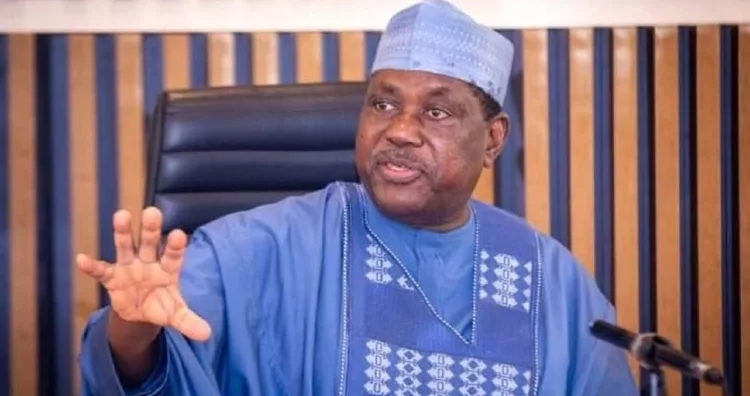The federal government has introduced a new satellite pay television service that it claims will serve as an alternative to existing ones while also satisfying Nigerians’ desire for value for money. Sen. George Akume, Secretary to the Government of the Federation (SGF), made the announcement at the official launch of Silver Lake Television (SLTV), an indigenous Nigerian satellite television station, in Abuja. He stated that the formation of the organization is in accordance with Nigerians’ desire to “reap from the bountiful harvest awaiting investors in the Nigerian economy.”
He praised the management of Metrodigital Limited (the firm’s owners) for what he saw as a patriotic gesture in establishing the satellite television, saying: “It is becoming increasingly evident that we are on the correct track to our common recovery and prosperity. This is our country; the only one we can genuinely claim as our own, and we must fix it ourselves.” The SGF continued, “In recent times, Nigerians have been yearning for alternatives to satellite pay TV that can serve as an alternative to the present ones. SLTV has answered loudly and clearly, and based on the facts provided to me, they are willing to give their fellow citizens real value for their money in terms of service quality and pricing.
“It is gladdening that Metrodigital recognizes the fact that the federal government has demonstrated an unwavering commitment through robust policies and legal frameworks to promote free, competitive, and responsible broadcasting services in Nigeria, devoid of any form of monopoly and unfair market practices in the broadcast industry, in line with the determination of the administration of President Bola Ahmed Tinubu to turn the Nigerian economy around.” “Since his ascendancy as the president of Africa’s most populous nation, the president has made enormous policy changes in his quest for economic recovery, one of the results being the reason that we have gathered here today.”
“Nigeria is a unique opportunity that cannot be replicated or found elsewhere in the world. The federal government wishes to reassure SLTV’s management of its complete support as they continue to conduct legitimate business in Nigeria’s broadcast industry.” Dr. Ifeanyi Okafor, managing director of Metrodigital Limited, noted that the expansion of pay TV in Nigeria had been impeded by policies and legal frameworks that favored monopolies. He stated, however, that his firm was encouraged to invest because the government had begun to take constructive actions to solve the issue.
- ATTENTION: Techrectory gives ₦5,000 monthly to our top readers, CLICK HERE to become a winner.
“The pay TV business in Nigeria has not experienced the robust and fast expansion that other countries have seen. The reason for this is because laws and regulatory frameworks impact industry participants’ practices and attitudes. This enabled the dominant players to implement monopolistic techniques that, over time, hampered innovation and expansion while also resulting in poor service quality.
“It is, however, gratifying that in the last few years, the federal government of Nigeria took the bull by the horn and addressed some of these underlying problems,” Okafor said in a statement. Speaking to reporters during the occasion, Charles Ebuebu, director general and chief executive officer of the Nigerian Broadcasting Commission (NBC), stated that the commission will evaluate Nigerian pay satellite television subscribers’ requests for the introduction of pay-per-view choices. However, he stated that he would be renegotiating the contracts already signed by the content providers.
“Certainly, if it’s relevant, it will be evaluated. The problem is that those discussions sometimes have to begin when the content is obtained, because the traditional manner of acquiring content is to license it per month or annually, depending on a 30-day timeframe. “So, if you’re going to have to do a pay-per-view, you need to go back and bargain. Certainly, we understand that in some cases, in other jurisdictions, some of those ideas go by various names but are still quite appropriate, and we’re looking into it as a regulator,” he said.
Ebuebu guaranteed that the commission would look into the issue of content overpricing while also stating that the country’s overall economic crisis impacts all industries. The NBC DG/CEO explained: “There are two sides to that coin; the first is that with the current economic situation of the country, inflation, and all of that, it’s not just broadcasting that is affected; all businesses are affected, so when prices are reviewed upwards, it’s not limited to the broadcast sector.
“However, we do acknowledge the fact that in some cases there has been exploitation in certain areas, and as the NBC, we’re looking at it; like I said, we’re reviewing our policies and regulations so as to create a viable competitive ecosystem in broadcasting where the consumers will be the ones who’ll have to choose, and therefore, market forces determine prices, and it’s not exploitative.”
Techrectory with Agency Report.



